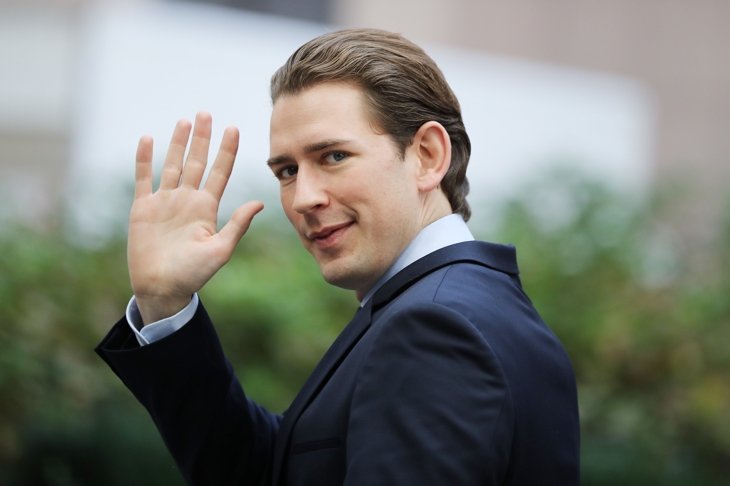Yesterday, Sebastian Kurz, the leader of Austria’s conservative People’s Party, announced his intention to form a new coalition government with the far-right Freedom Party (FPÖ). The Austrian far-right have been in federal government before, as recently as the mid-2000s, and narrowly lost last year’s presidential election (which had to be re-run). While the opening of coalition discussions may come as little surprise, it is seen with extreme scepticism by many in Austria and abroad – some worry that such a right-wing coalition will clamp down on civil liberties, others that it might estrange Austria from allies inside the EU. In Moscow, in the meantime, the response to today’s announcement is likely to be positive. If negotiations succeed and lift the Austria’s Freedom Party into government, Vladimir Putin will find one of his close allies at the top of an important EU member state.
There is so far no confirmed overt Russian interference in Austria’s elections. Perhaps it just was not necessary. The horse backed by Moscow was already heading towards success. Less than a year ago, in December 2016, representatives of the Austrian Freedom Party travelled to Moscow to sign a five-year cooperation agreement with the pro-Putin party, United Russia. In the agreement, both sides pledged regular consultations and exchange on key issues from international relations to ‘regulatory affairs’, and a joint commitment to raise ‘younger generations in the spirit of patriotism and work enjoyment’. Leading the delegation were Austria’s vice-chancellor to-be, Heinz Christian Strache, and last year’s presidential candidate, Norbert Hofer.
It was not the first touching point between the Austrian far right and Putin’s allies. In 2014, the far right FPÖ sent high-level party officials as election observers to the referendum on Crimea’s annexation by Russia. Party officials from the FPÖ have justified the annexation as ‘a domestic Russian issue that does not need to concern the European Union’. Their representatives travelled to Moscow to rail against the ‘homosexual lobby’ destroying conservative families, and criticise EU foreign policy as nothing more than a continuation of NATO. During the election campaign itself, the FPÖ remained quiet on its relationship with Moscow. The only reference to Russia in its manifesto is a short remark in its last chapter, criticising the ‘massive damage’ that the EU’s current ‘completely non-neutral policy’ towards Russia inflicts on Austrian businesses and agriculture: essentially a call to lift the EU’s economic sanctions against Moscow.
It is not just Austria where pro-Russian parties are on the rise. A similar development could be observed in German elections this September. Far-left Die Linke, a party that advocates for Germany to leave Nato and join a security alliance with Russia, has sat in parliament since 2009, and won 69 seats in the recent elections. With the far-right Alternative für Deutschland (AfD) now entering parliament, Die Linke has found an unlikely ally in its cause. Leading AfD politicians describe the annexation of the Crimea as legitimate and claim EU sanctions against Russia are ‘against international law’, with some joining Die Linke in their demand to pull Germany out of Nato. Together, both parties hold 23 percent of seats in the next German parliament.
The Austrian and German cases are part of a wider phenomenon. Some see a new divide between nativists and globalists restructuring Europe’s socio-political landscape. Putin has managed to position his government as an ally and supporter of anti-liberal, anti-Western actors across the continent. Sometimes money is involved in these relationships, but they also revolve around prestige and access to media and intellectual networks. Important examples include a €11m loan to French Front National in 2016, the recent establishment of Moscow-financed think tanks in Paris and Berlin, and the political agenda of Russia Today in Germany and the UK. In recent months, Russia Today has embarked on a large-scale advertisement campaign on London’s Underground, while simultaneously paying senior Labour figures to appear on its shows.
Greece’s far-left Syriza and Hungary’s anti-liberal Fidesz party are obvious examples of Putin’s allies who made it into European governments. Austria’s far-right FPÖ seems set to become another. This would give Moscow another useful advocate of its own interests not just in the Austrian government itself, but also in the European Council. With the EU already wavering in its unity vis-à-vis Russia, the Austrian elections may just have handed Putin another trump card.
Leopold Traugott is a Policy Analyst at Open Europe






Comments